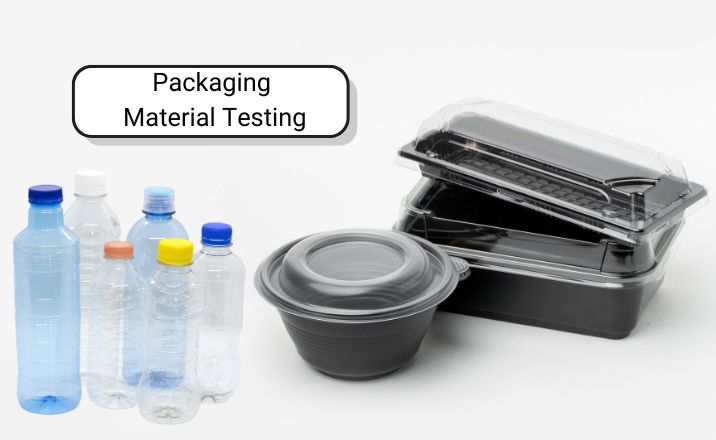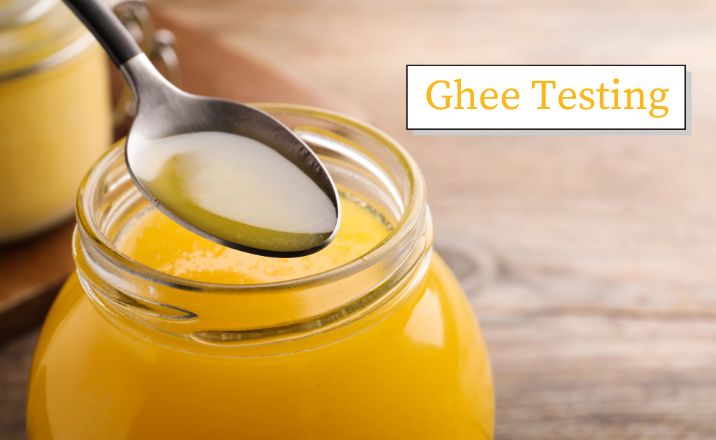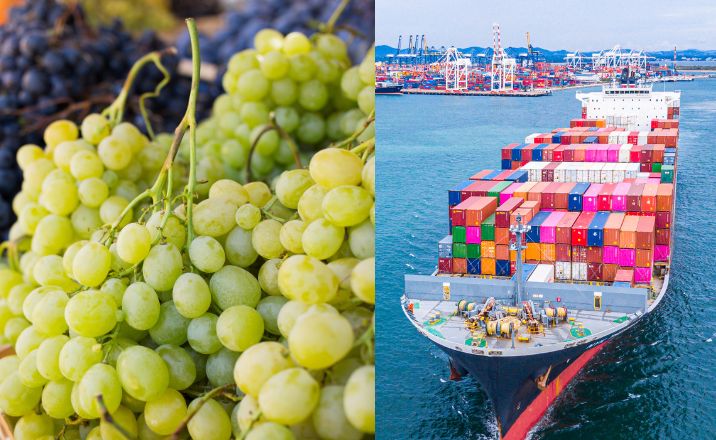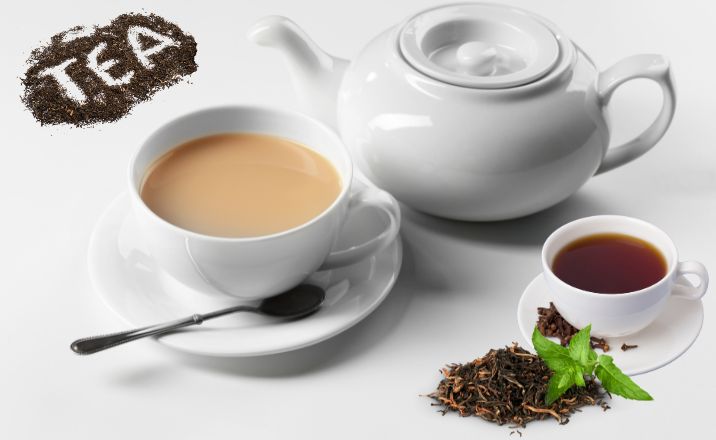Comprehensive Guide to Grape Testing for Export: Ensuring Quality and Safety in Global Markets
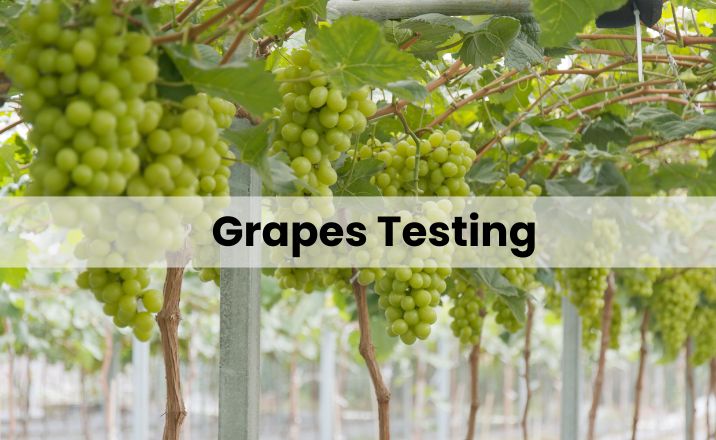
Introduction
Grapes export plays a significant role in meeting the global demand for this versatile fruit, cherished for its sweet and tangy flavor. Scientifically known as Vitis vinifera, grapes are consumed worldwide in various forms, including fresh fruit, dried raisins, and fermented wine. Packed with essential nutrients and antioxidants, grapes offer numerous health benefits, such as supporting eye health, promoting heart function, and strengthening bones, making them a valuable addition to a balanced diet. To maintain quality and safety standards in the global market, testing of grapes is essential, ensuring that consumers receive a product that is not only delicious but also safe to consume.
In today’s global agricultural marketplace, grape testing has emerged as a critical factor in ensuring food safety and maintaining international trade standards. As consumers become increasingly conscious about food quality and safety, rigorous testing procedures play a vital role in building trust and maintaining market access. This blog explores the intricate world of grape testing, its significance in international trade, and the essential steps required to meet global standards.
Indian Grape Exports and Market Overview
India ranks as the seventh-largest producer of grapes globally, contributing approximately 4.5% to the total global grape production. India’s strategic geographical location and favourable climate conditions have enabled exceptional productivity in grape cultivation. Recent export data revealed remarkable success, with India having exported 343,982.34 MT of grapes to international markets, demonstrating the country’s growing influence in global trade.
The success story of Indian grape exports is particularly evident in its diverse market penetration. Key destinations in 2023-24 include Netherlands, U.K., Middle East, Russia, and Bangladesh each market demanding specific testing protocols and quality standards. This international success stems from the concentrated efforts of major grape-growing states, with Maharashtra, Karnataka, Tamil Nadu, and Mizoram leading production and maintaining high testing standards to meet global requirements.
Grape Varieties in India and production
In India, more than 20 varieties of grapes are cultivated, although only about a dozen are grown commercially. These varieties can be classified into four main categories based on their color and seed characteristics:
- Coloured Seeded: Bangalore Blue, Gulabi (Muscat)
- Coloured Seedless: Beauty Seedless, Sharad Seedless
- White Seeded: Anab-e-Shahi, Dilkhush (a clone of Anab-e-Shahi)
- White Seedless: Perlette, Pusa Seedless, Thompson Seedless, and its clones Tas-A-Ganesh, Sonaka, and Manik Chaman.
Thompson Seedless grapes dominate the Indian grape farming landscape.
Why Grape Testing is Important?
Grape testing serves as the cornerstone of quality assurance in the grape industry. Modern testing methodologies encompass multiple parameters that directly impact product quality and safety. Advanced laboratories now employ sophisticated techniques to analyze sugar content (Brix levels), acidity, firmness, and color uniformity. These tests not only ensure compliance with international standards but also help predict shelf life and storage stability. Regular testing throughout the growing season helps farmers optimize harvest timing and maintain consistent quality standards.
Key Contaminants in Grape Production
- Chemical Contaminants: This includes pesticide residues (insecticides, fungicides, herbicides) and heavy metals (such as lead, arsenic, copper), which may accumulate from soil or agricultural practices, impacting the safety of grapes.
- Biological Hazards: Grapes may harbor harmful bacteria like E. coli and Salmonella, as well as fungi that could produce mycotoxins, especially during storage or transport.
- Environmental Contaminants: Excessive fertilizer residues and poor-quality irrigation water can impact grape safety, along with chemical residues from post-harvest treatments and storage facilities.
- Physical Contaminants: Foreign materials such as debris, packaging, or other physical contaminants can occur during handling and processing, posing safety concerns.
Regulations and Standards
Navigating the complex landscape of international regulations requires thorough understanding and compliance. Different markets maintain specific requirements for grape testing and quality parameters.
The European Union, for instance, enforces strict Maximum Residue Limits (MRLs) through comprehensive testing protocols.
Similarly, the FSSAI in India sets Maximum Residue Limits (MRLs) for various pesticides and contaminants permissible on grapes. These standards ensure the safety of grapes for both domestic consumption and export, helping maintain compliance with food safety regulations in India and internationally.
Understanding and adhering to these standards through proper testing procedures ensures smooth market access and sustained trade relationships.
Grapes Testing: Ensuring Safety and Quality
Grapes MRL (Maximum Residue Limit) testing is crucial for determining the presence of pesticide residues and other chemicals in grapes. The primary goal of this testing is to ensure that grapes meet regulatory standards for human consumption, maintaining both safety and quality.
Key Aspects of Grapes Testing
- Maximum Residue Limits (MRLs):
- MRL testing measures the levels of pesticides and other chemicals on grapes to ensure they are within safe limits set by regulatory agencies such as FSSAI (India), APEDA, EU, or USFDA.
- These limits are established to ensure that the use of chemicals in grape farming does not pose any health risks to consumers.
- Physical Parameters:
- Grapes are assessed for factors like maturity, size, color, and firmness to meet specific quality requirements for fresh grapes.
- These parameters are essential for grading grapes and ensuring they are suitable for retail markets.
- Chemical Parameters:
- Testing for sugar content, acidity, and total soluble solids (TSS) helps to confirm the flavor and quality of the grapes, ensuring they meet taste standards for fresh consumption and winemaking.
- Microbiological Safety:
- Grapes are tested for harmful bacteria like E. coli and Salmonella, especially for those intended for juice production or other processed forms. This ensures the microbiological safety of the grapes for consumer use.
Why Choose Us?
At Envirocare Labs, we specialize in comprehensive grape testing services that help producers, exporters, and consumers ensure the highest standards of quality, safety, and regulatory compliance. Our state-of-the-art facilities, equipped with advanced technologies such as LCMS/MS (Liquid Chromatography-Mass Spectrometry) and GCMS/MS (Gas Chromatography-Mass Spectrometry), ensure the highest level of accuracy and reliability in grape testing.
We understand the importance of timely results in the competitive grape market, which is why we offer fast turnaround times (TAT), enabling you to make informed decisions quickly.
Whether you’re involved in domestic production or export, our rigorous testing services provide the assurance you need to succeed in the competitive grape market.
Conclusion
Grapes testing is an integral part of the food safety and quality assurance process. By employing advanced analytical techniques and adhering to strict regulatory standards, stakeholders in the grapes industry can ensure that their products are safe, high-quality, and market-ready. Whether you are a producer, distributor, or consumer, understanding the importance and intricacies of grapes testing can help you appreciate the efforts involved in bringing safe and nutritious grapes to your table.
Looking to ensure your grapes meet international quality standards? Contact Envirocare Labs for comprehensive testing solutions that guarantee compliance and build trust in global markets.
Reference:
- https://apeda.gov.in/apedawebsite/SubHead_Products/Grapes.html
- https://agriexchange.apeda.gov.in/product_profile/exp_f_india.aspx?categorycode=0205

